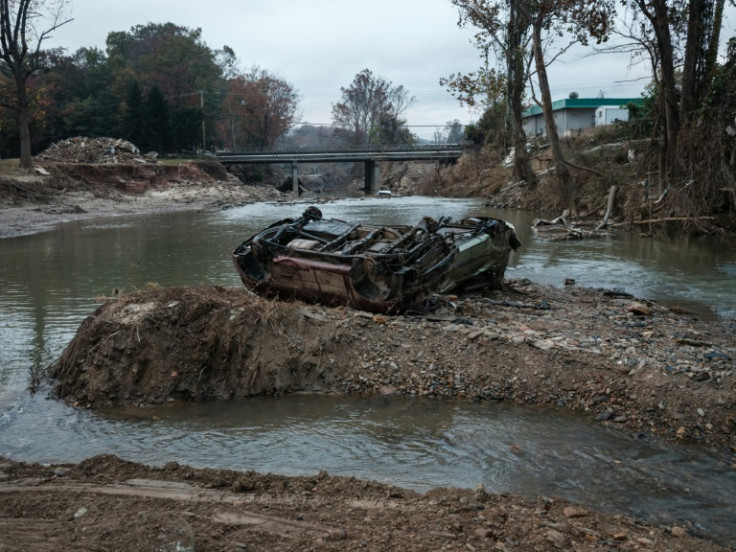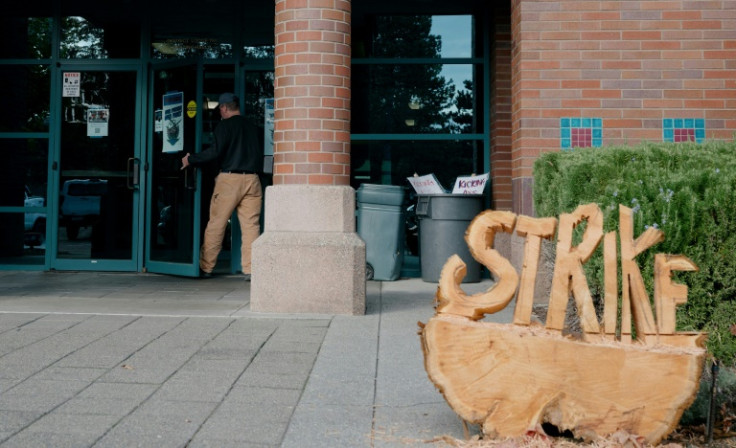US Hiring Slowest Since Biden Took Office, On Strikes, Hurricanes

US job growth slowed drastically in October, hit temporarily by hurricanes and labor strikes, in a final major economic snapshot at the end of a razor-edge presidential election campaign where cost-of-living worries dominated voter concerns.
The world's biggest economy added 12,000 jobs last month, far below expectations and down from a revised 223,000 in September, said the Department of Labor. But in a more positive sign, the unemployment rate was unchanged at 4.1 percent.
The jobs data on hiring and unemployment will be scrutinized by the teams of both presidential candidates -- Democrat Kamala Harris and Republican Donald Trump -- but employment numbers would likely have been higher if not for fallout from devastating hurricanes and worker strikes.
Unusually weak hiring numbers threaten to affect how Americans view the jobs market, some analysts warned.
The collective impact of Hurricanes Helene and Milton, alongside work stoppages by Boeing workers and others, could cut job growth by up to 100,000 positions, Council of Economic Advisers Chair Jared Bernstein said this week.
A market consensus anticipated the United States added 120,000 jobs in October.
The latest figure marks the slowest rate of hiring since late 2020, and the lowest pace since President Joe Biden took office.
"The October jobs report will be muddied," said EY senior economist Lydia Boussour.
In the Bureau of Labor Statistics survey tracking hiring, workers on strike for the entire reference pay period are not counted as employed.
Besides some 33,000 Boeing workers on strike in the Seattle area, others doing so included 5,000 machinists at Textron Aviation and 3,400 hotel workers, Boussour noted.
Meanwhile, Hurricane Helene made landfall in late September -- meaning many people were probably unable to return to work when the labor market survey was carried out.
Similarly, the survey week coincided with Hurricane Milton's landfall.
"The October jobs report will need to be put into the broader context of a resilient but slowing labor market," Boussour told AFP.
Despite slower hiring, economist Rubeela Farooqi of High Frequency Economics said the market's resilience should still support household budgets.
A weaker headline hiring figure "will likely weigh on how people view economic conditions," Farooqi said.
More broadly, "households are not feeling the benefits of a still strong labor market," she added, pointing to the weight of cumulative inflation.
But economist Harry Holzer, a nonresident senior fellow at the Brookings Institution in Washington, expects consumers' focus on inflation means hiring numbers will not dramatically shift perceptions.
The public will already expect to see lower hiring due to strikes and disasters, he added.
A bigger problem would be a sharp labor market slowdown after taking temporary factors into account.
"Rising incomes are keeping consumers' wallets open. Any disruption of this would suggest the economy's growth engine is starting to sputter," Nationwide economist Oren Klachkin said.
Barring negative surprises, he expects the Federal Reserve to opt for a quarter-percentage-point interest rate cut at next week's policy meeting.
It is hard to predict the length of fallout from strikes and disasters.
For Aubrey Anderson, CEO of river recreation business Zen Tubing in North Carolina, Hurricane Helene's devastation will cost at least a million dollars in losses.
"This is the first time that the water has damaged the infrastructure of the business," said Anderson.
She expects her Asheville site to remain closed in 2025, meaning she will need just half the 100 employees she usually hires next spring and summer.
Helene was the second-most deadly hurricane to hit the continental United States in more than 50 years, after Katrina.
"We could not have expected something like this," Anderson told AFP.


© Copyright AFP 2025. All rights reserved.




















